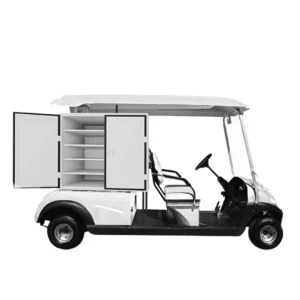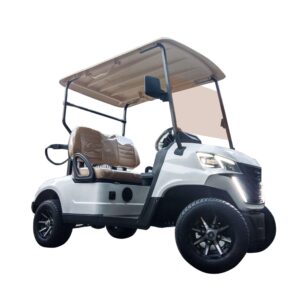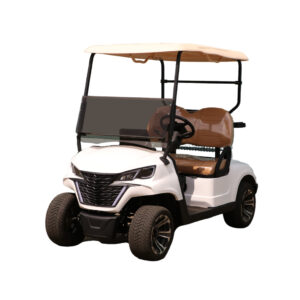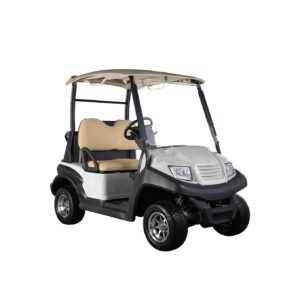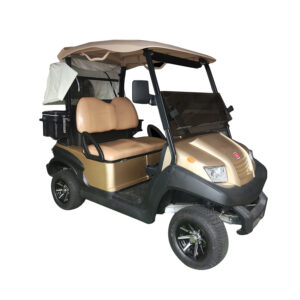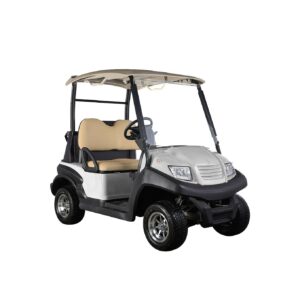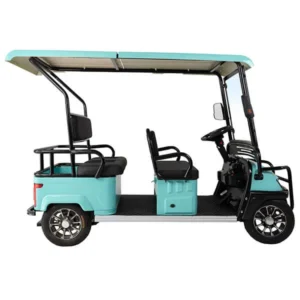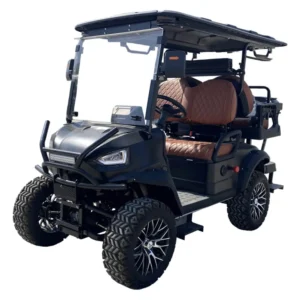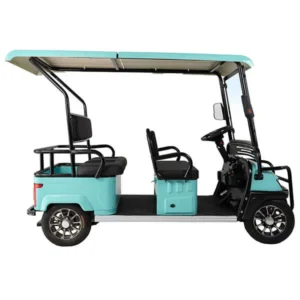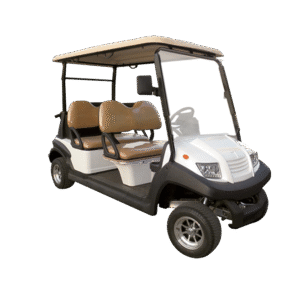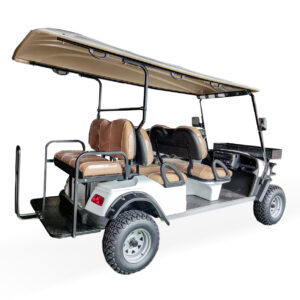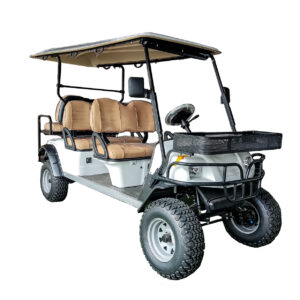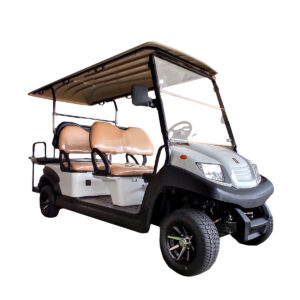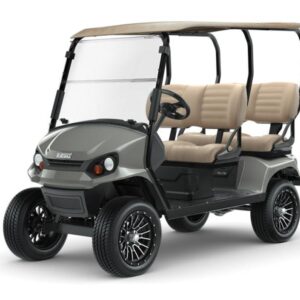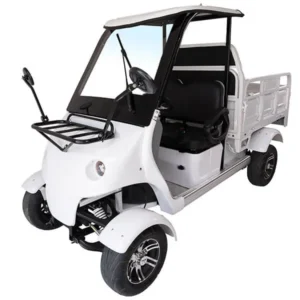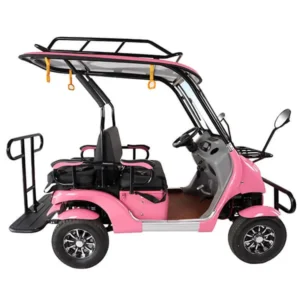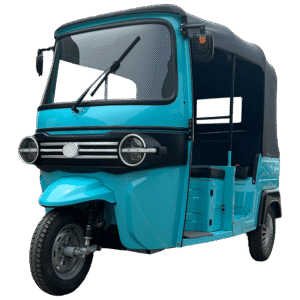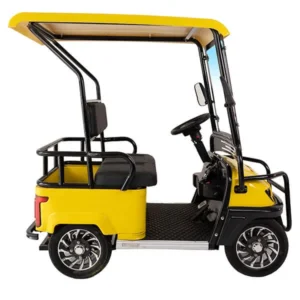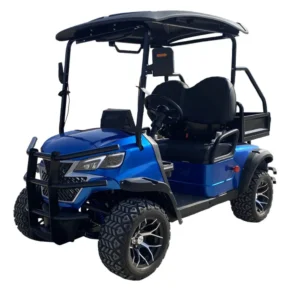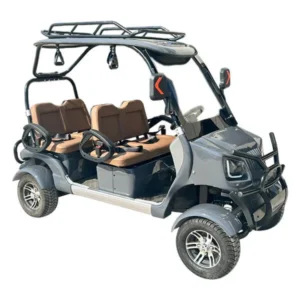Golf Carts: Everything You Need to Know Before Buying or Renting
Golf carts have become more than just a vehicle for the golf course. These compact and efficient machines are now used in gated communities, resorts, farms, college campuses, and even urban neighborhoods. Whether you’re an avid golfer or someone exploring eco-friendly transport options, understanding the various types, benefits, and uses of golf carts can help you make a smarter decision.
In this guide, we’ll explore everything about golf carts — from their history and types to buying tips, maintenance, and legal considerations. Whether you’re buying a new golf cart or looking to rent one, this article will provide all the essential information.
What Is a Golf Cart?
A golf cart is a small vehicle designed originally to carry golfers and their equipment across a golf course. Over time, golf carts have evolved into versatile vehicles used for transportation in a wide range of environments.
Most golf carts operate on electric or gas power and typically reach speeds of 15–25 mph. They usually seat 2–6 passengers, depending on the model.
History of Golf Carts
The first golf carts were introduced in the 1930s, mainly for people with disabilities. It wasn’t until the 1950s and 60s that they became popular among golfers. Companies like E-Z-GO, Club Car, and Yamaha began mass-producing golf carts, contributing to their growing popularity.
Today, golf carts are widely used not only on courses but also for residential, commercial, and recreational purposes.
Types of Golf Carts
1. Electric Golf Carts
-
Power Source: Rechargeable batteries (usually 36V or 48V)
-
Pros:
-
Eco-friendly
-
Quiet operation
-
Low maintenance
-
-
Cons:
-
Limited range per charge
-
Requires regular charging
-
2. Gas-Powered Golf Carts
-
Power Source: Gasoline engine
-
Pros:
-
Greater power and range
-
Ideal for rugged terrain
-
-
Cons:
-
Louder operation
-
Higher emissions
-
More maintenance
-
3. Street Legal Golf Carts (LSVs)
-
Known as Low-Speed Vehicles (LSVs)
-
Must have safety features like:
-
Headlights
-
Turn signals
-
Brake lights
-
Seat belts
-
Windshields
-
-
Used for neighborhood commuting and short city drives
Common Uses of Golf Carts
Golf carts are used in a variety of settings beyond the golf course:
1. Gated Communities
Residents use golf carts for quick trips around the neighborhood.
2. Resorts & Hotels
Used for transporting guests, luggage, and housekeeping staff.
3. Farms & Ranches
Farmers use them to transport tools, feed, and livestock supplies.
4. Events & Venues
Perfect for moving staff and equipment at large events.
5. College Campuses
Used by staff and faculty for internal transportation.
6. Industrial & Commercial Facilities
Employed for moving goods and personnel in warehouses and factories.
Top Golf Cart Brands
When it comes to quality and durability, these brands are leaders in the golf cart industry:
-
Club Car – Known for its durability and sleek design
-
E-Z-GO – Offers a wide variety of models, both electric and gas
-
Yamaha Golf-Car Company – Renowned for smooth suspension and gas efficiency
-
Star EV – Offers luxury and street-legal options
-
Cushman – Ideal for commercial and utility purposes
Buying vs. Renting a Golf Cart
Buying a Golf Cart
Pros:
-
Long-term cost savings
-
Customization options
-
More convenient
Cons:
-
Higher upfront cost
-
Requires storage and maintenance
Best for:
-
Homeowners in golf communities
-
Businesses needing daily use
Renting a Golf Cart
Pros:
-
No maintenance required
-
Lower initial cost
-
Great for short-term use
Cons:
-
Limited customization
-
Long-term rental costs add up
Best for:
-
Vacationers
-
Event planners
-
Occasional users
New vs. Used Golf Carts
Buying New
-
Comes with warranty
-
Latest features and technology
-
Customizable
Buying Used
-
Cheaper upfront
-
May have signs of wear
-
Important to check battery life and service history
Tip: Always ask for service records and test drive before buying a used cart.
Key Features to Consider
When shopping for a golf cart, look for the following features:
1. Battery Life (Electric Carts)
Choose lithium-ion batteries if possible—they last longer and charge faster.
2. Speed & Power
Ensure it can handle your terrain—flat for standard carts; hilly areas need more torque.
3. Seating Capacity
Standard is 2–4 seats; some models go up to 6 or 8 seats.
4. Storage Options
Look for rear cargo beds, glove compartments, or under-seat storage.
5. Tires & Suspension
All-terrain tires and better suspension for non-golf course use.
6. Safety Features
Especially important for street-legal carts—lights, mirrors, seatbelts.
Golf Cart Maintenance Tips
-
Battery Maintenance
-
Keep batteries clean and charged
-
Check water levels (for lead-acid batteries)
-
-
Tire Pressure
-
Maintain proper PSI for safety and performance
-
-
Brake Checks
-
Inspect pads and adjust cables regularly
-
-
Clean the Cart
-
Prevent rust and damage with regular cleaning
-
-
Annual Service
-
Full check-up including electrical, mechanical, and cosmetic parts
-
Legal Considerations for Street Use
1. Local Laws Vary
-
Some cities allow golf carts on public roads under certain conditions
-
Always check your local DMV or municipality laws
2. Requirements for LSVs
-
Must have a VIN
-
Maximum speed: 20–25 mph
-
Must be registered, insured, and titled
3. Age Restrictions
-
Operators must have a valid driver’s license
Golf Cart Customization Options
-
Paint and Wraps
-
Custom Wheels and Tires
-
Lift Kits
-
Sound Systems
-
LED Lights
-
Coolers and Cup Holders
-
Roof Racks and Windshields
Customization allows you to make your golf cart uniquely yours, whether for aesthetic appeal or functionality.
Golf Cart Prices: What to Expect
New Golf Cart Prices
-
Basic electric model: $6,000 – $8,000
-
High-end models: $10,000 – $20,000+
Used Golf Cart Prices
-
Older electric carts: $2,000 – $5,000
-
Refurbished gas carts: $4,000 – $8,000
Rental Rates
-
Daily: $40 – $100
-
Weekly: $250 – $600
-
Monthly: $800 – $1,500
Prices vary based on model, location, and features.
Where to Buy or Rent a Golf Cart
Online Retailers
-
GolfCartKing.com
-
BuggiesUnlimited.com
-
Amazon (for accessories)
-
Facebook Marketplace / Craigslist
Local Dealers
-
Provide service support
-
Allow test drives
-
Offer financing options
Rental Services
-
Common in vacation destinations, resorts, and beach towns
Environment and Sustainability
Electric golf carts are often praised for being eco-friendly. They:
-
Produce zero emissions
-
Run quietly, reducing noise pollution
-
Are energy-efficient alternatives to cars for short trips
Lithium-ion battery models are even more sustainable, with longer lifespans and fewer replacements.
Final Thoughts
Golf carts have transformed from simple sports vehicles to multi-functional modes of transportation. Whether you’re a golfer, a homeowner in a gated community, or someone managing a large property or resort, a golf cart can be a convenient, eco-friendly, and cost-effective solution.
When buying or renting a golf cart, consider your needs, budget, and intended use. Be sure to explore both electric and gas options, and understand local regulations before hitting the road.
Frequently Asked Questions (FAQs)
1. Do I need a license to drive a golf cart?
In most places, yes—especially if driving on public roads. Always check local regulations.
2. How long do golf cart batteries last?
Typically 4–6 years, depending on use and maintenance.
3. Are golf carts safe?
Yes, especially with seatbelts, lights, and proper driving. Street-legal carts have additional safety requirements.
4. Can I make my golf cart faster?
Yes, by upgrading the motor or controller. Be cautious—modifications may void warranties or affect legal use.
5. How far can an electric golf cart go on one charge?
Usually 15–25 miles. Lithium-ion batteries offer greater range and faster charging.
golf carts
Showing all 25 results
-
-
golf carts
2-Seater Forward Electric Golf Cart (White) – Electric Eagle
The 2 Seater Forward Electric Golf Cart comes with features and accessories that are out of the ordinary. With multi-function LCD instrument panel, an in-car multimedia system and speakers that connects to your mobile device.
SKU: n/a -
4 Seater golf carts, golf carts, golf carts for sale
4-Seater Lifted Electric Golf Cart
Passenger capacity: 4 persons
Motor: 5KW Motor (AC motor)
Bigger tires, with better grip to withstand muddy ground
Designed for rough road driving
Higher ground clearance
Top luggage cargo rack
Front metal basket
Retractable canopy on the backSKU: n/a -
4 Seater golf carts, Electric Golf Carts, golf carts, golf carts for sale
4-Seater Standard Electric Golf Cart
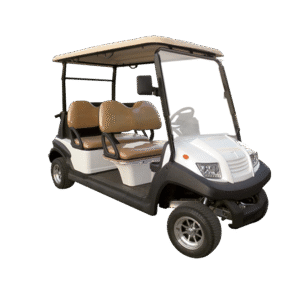 4 Seater golf carts, Electric Golf Carts, golf carts, golf carts for sale
4 Seater golf carts, Electric Golf Carts, golf carts, golf carts for sale4-Seater Standard Electric Golf Cart
System: 48V,3.8KW
Motor: 3.8KW Motor (AC motor)
Battery: Maintenance free battery
Passenger capacity: 4 persons
Charger: Eagle off board charger,220v/60hz
Overall dimensions (mm): 3160x1180x1980
Mags: 10 inch aluminum wheel rim
Other features: USB interface, Side rear view mirror, Wide body frame, HeadlightSKU: n/a -
-
6 Seater golf carts, Electric Golf Carts, golf carts, golf carts for sale
6-Seater Standard Electric Golf Cart
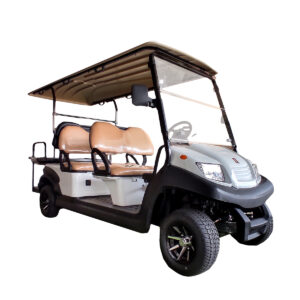 6 Seater golf carts, Electric Golf Carts, golf carts, golf carts for sale
6 Seater golf carts, Electric Golf Carts, golf carts, golf carts for sale6-Seater Standard Electric Golf Cart
System: 48V,3.8KW
Motor: 3.8KW Motor (AC motor)
Battery: Maintenance free battery
Passenger capacity: 6 persons
Charger: Eagle off board charger,220v/60hz
Mags: 10 inch aluminum wheel rim
Other features: USB interface, Side rear view mirror, Wide body frame, Wide Headlight, Split windshield, Flip back (extra compartmentSKU: n/a -
golf carts
6-Seater Standard Electric Golf Cart (White) – Electric Eagle
In a world steadily shifting towards eco-friendly transportation, electric golf carts have emerged as one of the most efficient and sustainable solutions for personal and commercial mobility. Among these, the 6-Seater Standard Electric Golf Cart (White) by Electric Eagle has garnered attention for its perfect blend of performance, style, and sustainability.
SKU: n/a -
8 Seater golf carts, Electric Golf Carts, golf carts, golf carts for sale
8 seats 72V high raised independent suspension disc brake electric golf buggy cart LS2060ASZ
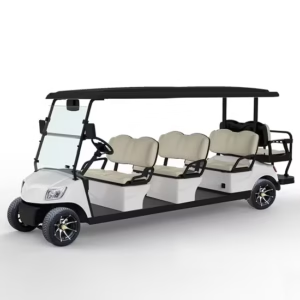 8 Seater golf carts, Electric Golf Carts, golf carts, golf carts for sale
8 Seater golf carts, Electric Golf Carts, golf carts, golf carts for sale8 seats 72V high raised independent suspension disc brake electric golf buggy cart LS2060ASZ
Model No: LS2060ASZ System Voltage: 72V & 48V Battery: 100AH LFP Lithium Controller: 400A AC Motor: 5KW/7.5KW Max.speed: 25mph(40km/h) Range: 100kms Climbing Ability: 25% SKU: n/a -
-
Electric Golf Carts
Two Row Golf Cart – Dragon-Era
As a manufacturer of golf carts, we offer high-quality two row golf carts specifically designed for wholesalers. Our products are not only suitable for golf courses but can also be widely used in communities, resorts, and other recreational areas. Customization is supported, and prices are favorable.
SKU: n/a

